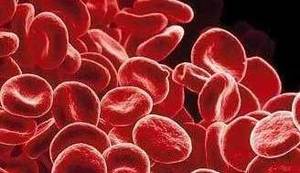Loss of appetite accompanied by mild weight loss is a combination of symptoms that may seem common, but can indicate a variety of underlying causes, ranging from stress to medical conditions. By understanding these potential reasons, you can make informed decisions about when it might be necessary to seek professional help. This article explores the most common causes, emerging trends, and practical advice on dealing with these issues.
The Basics: Why Appetite and Weight Matter
Appetite is the body’s natural mechanism to signal that it needs nourishment. When appetite diminishes without a conscious reason, it can lead to unintended weight loss, which, over time, may have health implications. Even mild weight loss (typically defined as 5-10 pounds or around 5% of body weight within six months) could indicate that the body is facing physical or psychological stress.
Common Causes of Appetite Loss and Weight Loss
There are many potential reasons behind a sudden loss of appetite and weight loss, ranging from simple, temporary issues to more complex medical conditions. Here are the most common ones:
| Cause | Symptoms | Treatment Options |
|---|---|---|
| Stress and Anxiety | Appetite suppression, fatigue, nausea | Therapy, relaxation techniques |
| Gastrointestinal Disorders | Nausea, bloating, stomach pain | Medications, diet adjustments |
| Medication Side Effects | Lack of hunger, changes in taste | Consultation with a physician |
| Thyroid Imbalance | Fatigue, rapid metabolism, irritability | Medication, endocrinologist care |
| Chronic Infections | Weakness, digestive disturbances | Antibiotics, medical evaluation |
A Recent Trend: Appetite Changes in Post-Viral Syndrome
In recent years, appetite changes have been widely reported as part of post-viral syndrome, particularly following COVID-19. A study published in the Journal of Clinical Medicine in 2023 indicated that approximately 30% of individuals recovering from viral infections experienced temporary appetite loss, leading to minor weight loss in the weeks that followed.
Psychological Factors at Play
Mental health plays a significant role in appetite regulation. Anxiety and stress can suppress appetite through hormonal changes, particularly by affecting levels of cortisol and adrenaline, which can impact the digestive system.
Did you know? Appetite suppression due to stress is sometimes referred to as “stress anorexia.” Studies show that up to 40% of individuals under chronic stress experience a reduction in appetite. (Source: American Psychological Association, 2022)
Medical Situations: Practical Example
Consider a 35-year-old woman recovering from a major life change such as job loss. She experiences ongoing anxiety, leading to reduced appetite. Over three months, she loses 8 pounds unintentionally. Her physician recommends a mix of talk therapy and dietary strategies focused on high-calorie, nutrient-rich snacks. Within weeks, her weight stabilizes, illustrating how addressing both mental and physical factors is essential for resolving mild weight loss.
Practical Tips for Dealing with Appetite Loss
While professional help is always recommended if symptoms persist, there are several strategies that can help manage mild appetite loss and weight reduction:
- Small, Frequent Meals: Eating smaller portions more often can prevent overwhelming the digestive system. It can also ensure a steady intake of calories throughout the day.
- Calorie-Dense Foods: Foods like avocados, nuts, and nut butter are rich in nutrients and calories, helping to counterbalance weight loss even when appetite is low.
- Stay Hydrated: Dehydration can further reduce appetite, so ensuring proper fluid intake is crucial. Avoid large volumes of water before meals to prevent feeling too full.
Emerging Trends: Meal Replacement Drinks
Meal replacement shakes have become increasingly popular for those experiencing appetite loss. The global market for meal replacement products saw a 12% rise in 2023, driven by consumers looking for easy solutions to maintain their calorie intake without needing full meals. These drinks, such as Ensure or Boost, typically cost between $8 to $15 for a 6-pack and are formulated to provide balanced nutrition.
Did you know? Ginger has been traditionally used to stimulate appetite. Research from Phytotherapy Research in 2022 showed that ginger extract can increase appetite by up to 20% when consumed before meals. (Source: Phytotherapy Research, 2022)
Long-Term Health Considerations
If appetite loss and weight loss persist, it’s crucial to monitor other symptoms. Weight loss accompanied by fatigue, pain, or other signs might indicate an underlying condition that needs medical evaluation.
| Symptom | Possible Condition |
|---|---|
| Persistent fatigue | Thyroid disorder, anemia |
| Stomach discomfort | Gastritis, peptic ulcers |
| Irritability and sweating | Hyperthyroidism |
Low-Calorie Foods That Boost Appetite
Advice from Our Editorial Team
If you or a loved one are experiencing loss of appetite and mild weight loss, it’s important not to ignore the signs. While occasional appetite changes are common, persistent symptoms require professional assessment. Simple dietary changes, combined with managing stress and maintaining physical health, can often resolve mild weight issues. Remember, understanding the root cause of your symptoms is the first step toward effective treatment and better health outcomes.









